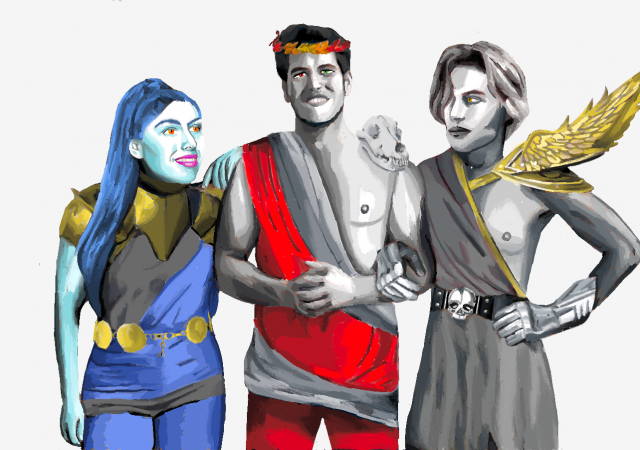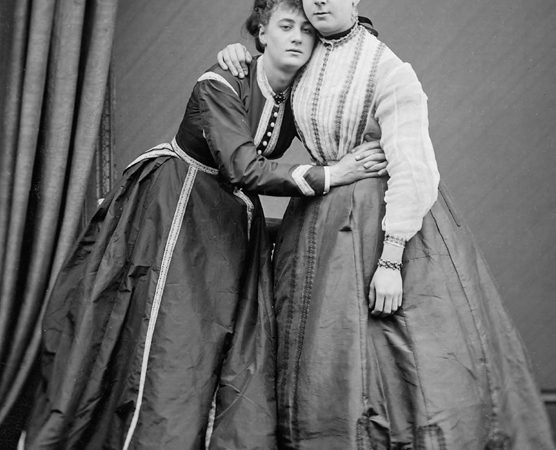
Flower Maiden
Kaden/OutWrite There’s a knock, and the house seems to pause. Three years have passed, three years since you last saw her, but the air still holds the weight of stories and laughter…

Hades and Queer Representation
Charlie Richmond/OutWrite This article contains spoilers for the video game “Hades.” During my brief break…

Misgendering the Misgendered
I first witnessed a transgender character misgendered by her own author in “The Man Who Thought Himself a Woman,” a short story published anonymously in 1857. The text was assigned for a queer short stories course at UCLA, and while I wasn’t surprised that a transgender character was misgendered by a writer in 1857, I was surprised that a professor of queer studies in 2023 would as well.

Southern California Fires and Mutual Aid
Although the fires are mostly contained today, Angelenos struggle to rebuild, whether they were directly or indirectly impacted by the crisis. It’s dehumanizing to attempt to resume business as usual because entire communities were leveled and livelihoods were lost. Supporting local mutual aid efforts and collectively pressuring administrative bodies remain crucial in serving the needs of our communities.
The “Rainbow Ceiling” in Healthcare: Characterizing Modern Inequities in Healthcare & Health Education
Katelyn Lee/OutWrite Content warning: Discussion of HIV/AIDS-related stigma (serophobia) Even in 2024, the American Medical Association’s (AMA) first openly gay president, Dr. Jesse Ehrenfeld, needed to talk about the fight against workplace discrimination in a healthcare system already battling “record…
Donald Trump’s Election and How to Keep Going
Katelyn Lee/OutWrite Content warning: mention of suicide, discussions of transphobia. President Donald Trump took office on Jan. 20, 2025. As of Jan. 24th, Trump has already signed numerous harmful executive orders. In addition to pardoning over 1,000 individuals charged with…
Stand Up, Fight Back! AFSCME 3299 Workers and Student Advocates Strike
On Nov. 20 and 21, Local 3299 workers picketed in front of the Ronald Reagan Medical Hospital, Luskin Conference Center, and at Bruin Plaza from 6 a.m. to 6 p.m. Across the UC campuses, more than 37,000 workers joined the AFSCME picket lines. Students demonstrated in solidarity, mobilized by the Student Labor Advocacy Project (SLAP) at UCLA.
Students and Faculty Sue UC Regents Over Free Speech Infringement During Pro-Palestine Encampment
Four UCLA community members are suing the UC Regents for violating the First Amendment right to free speech and allowing police and a Zionist mob to brutalize members of the non-violent encampment in Spring of 2024.
A New Face for OC: Meet Dom Jones
Amid this 2024 election season, which has all of us holding our breaths, one candidate is working to change the narrative for Orange County, California. Dom Jones (she/they) is a queer Black woman who has been fighting for the rights of queer existence in the Huntington Beach area, and is now trying to expand her fight to becoming the representative for California State Assembly District 72.






















